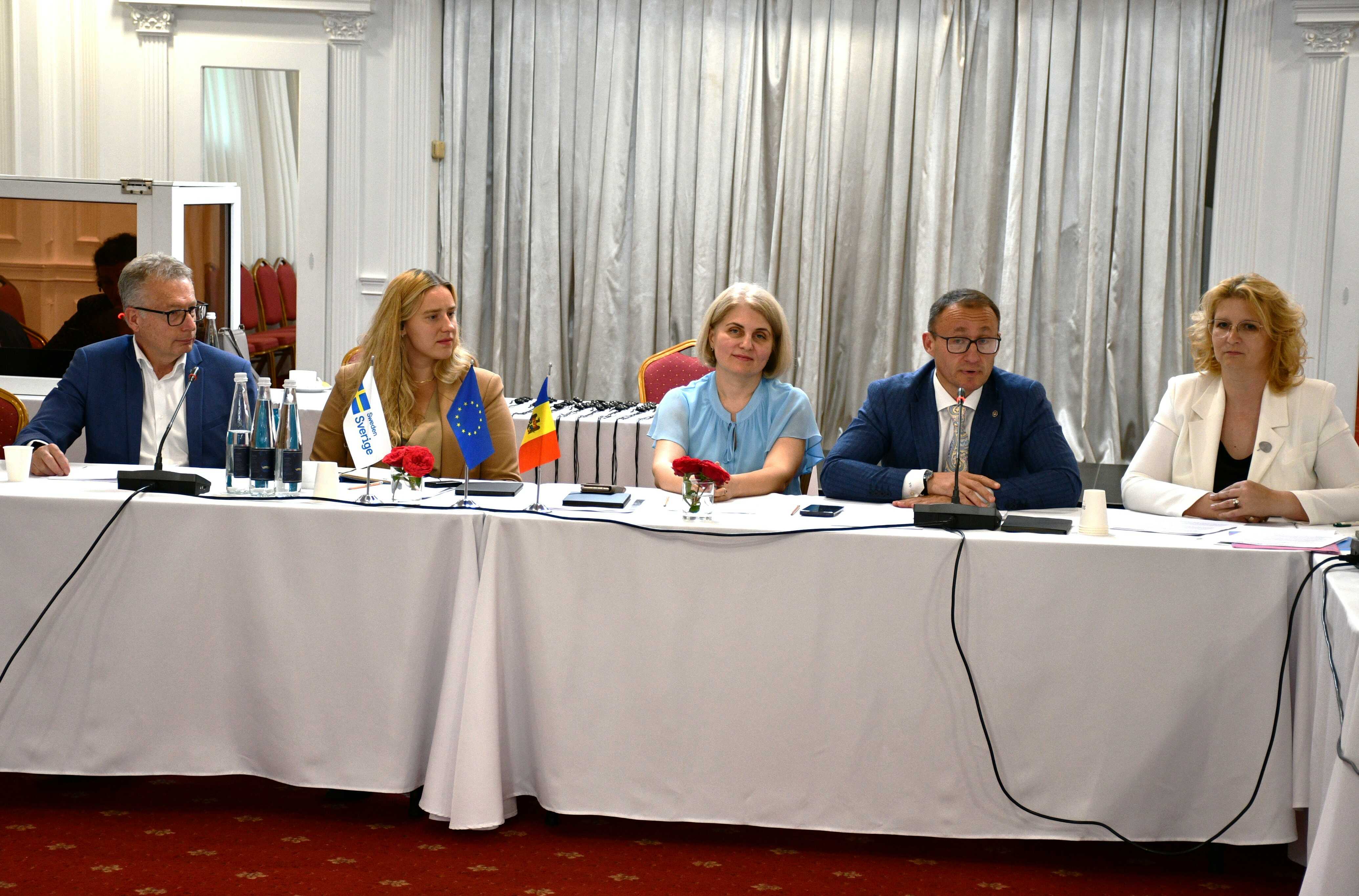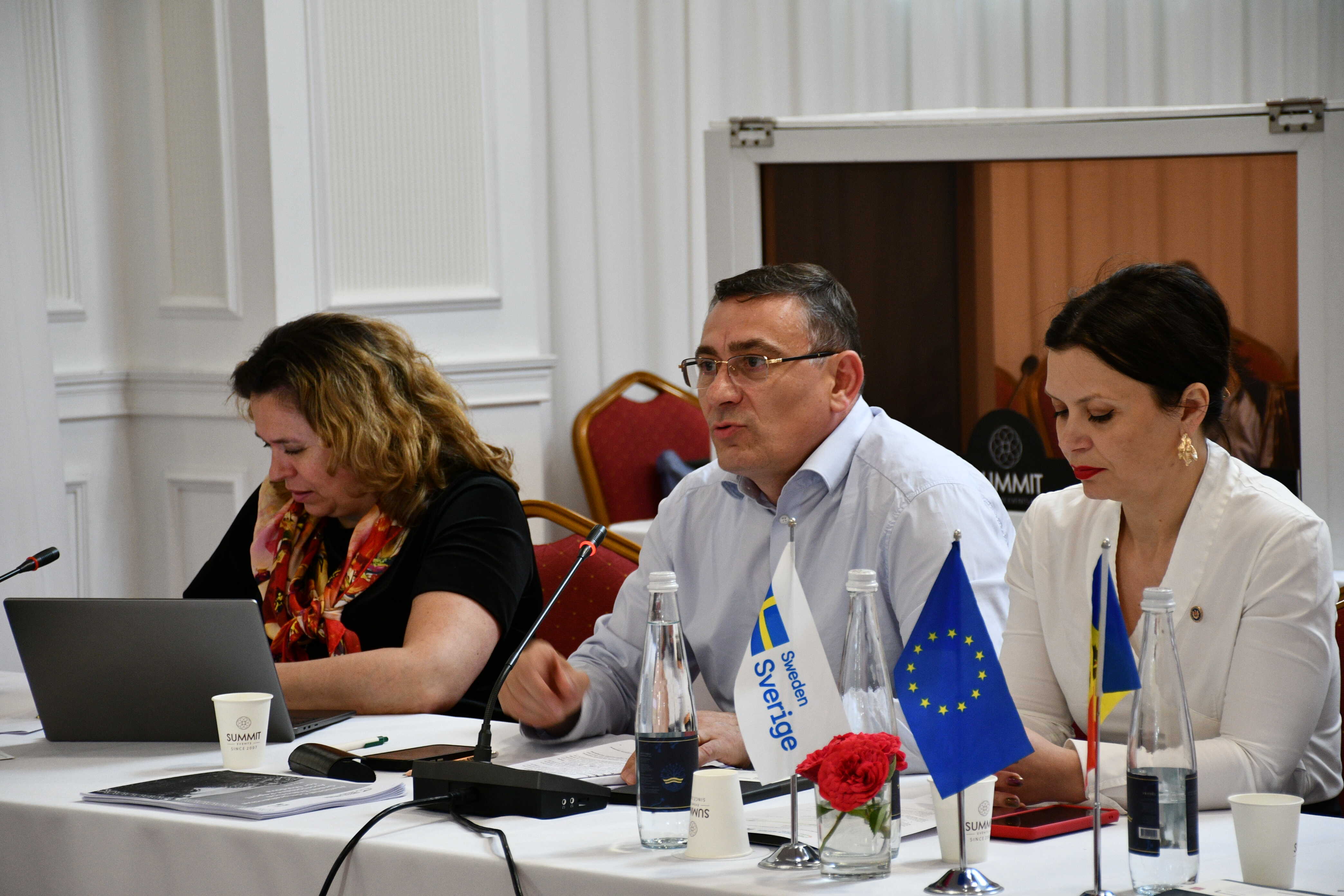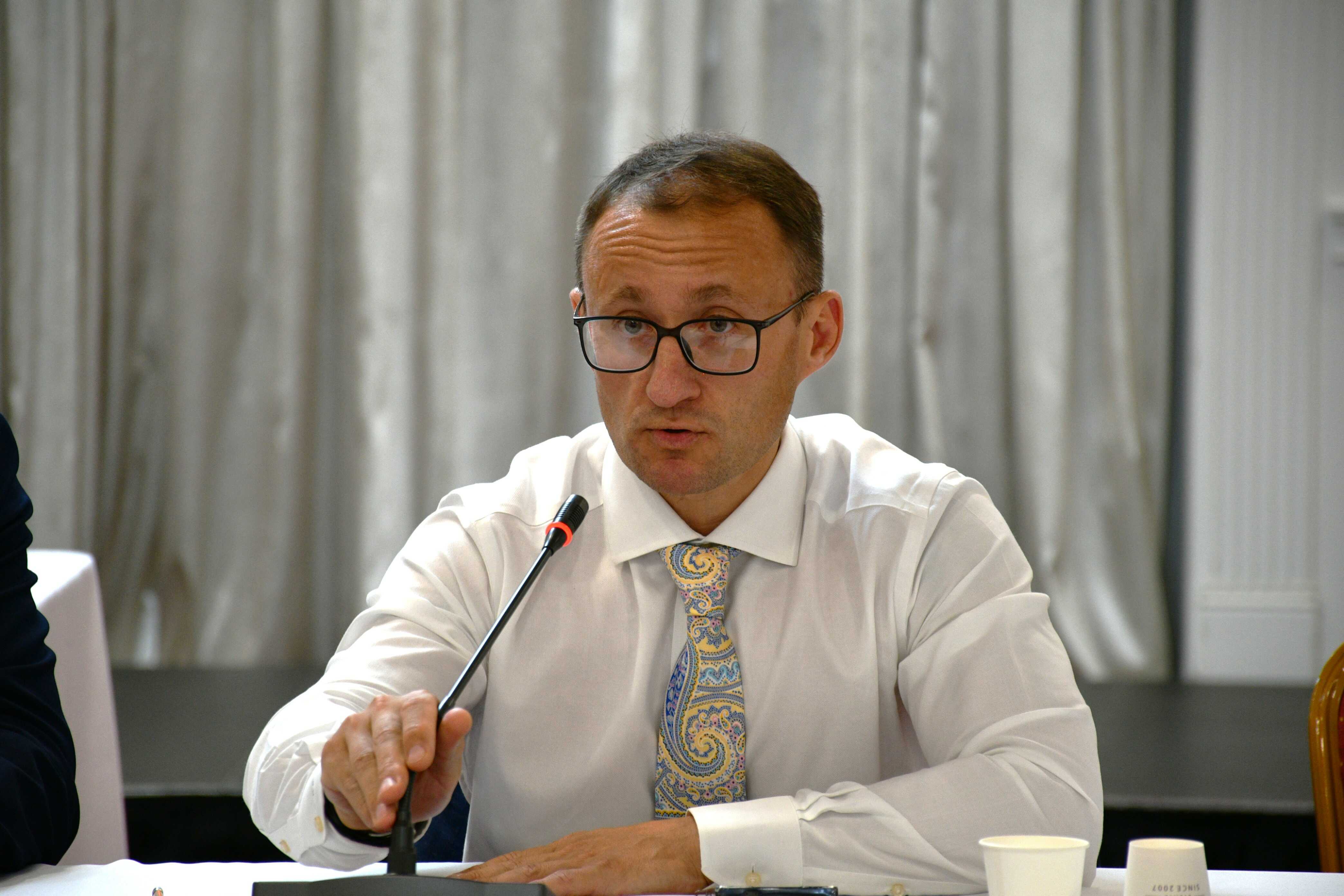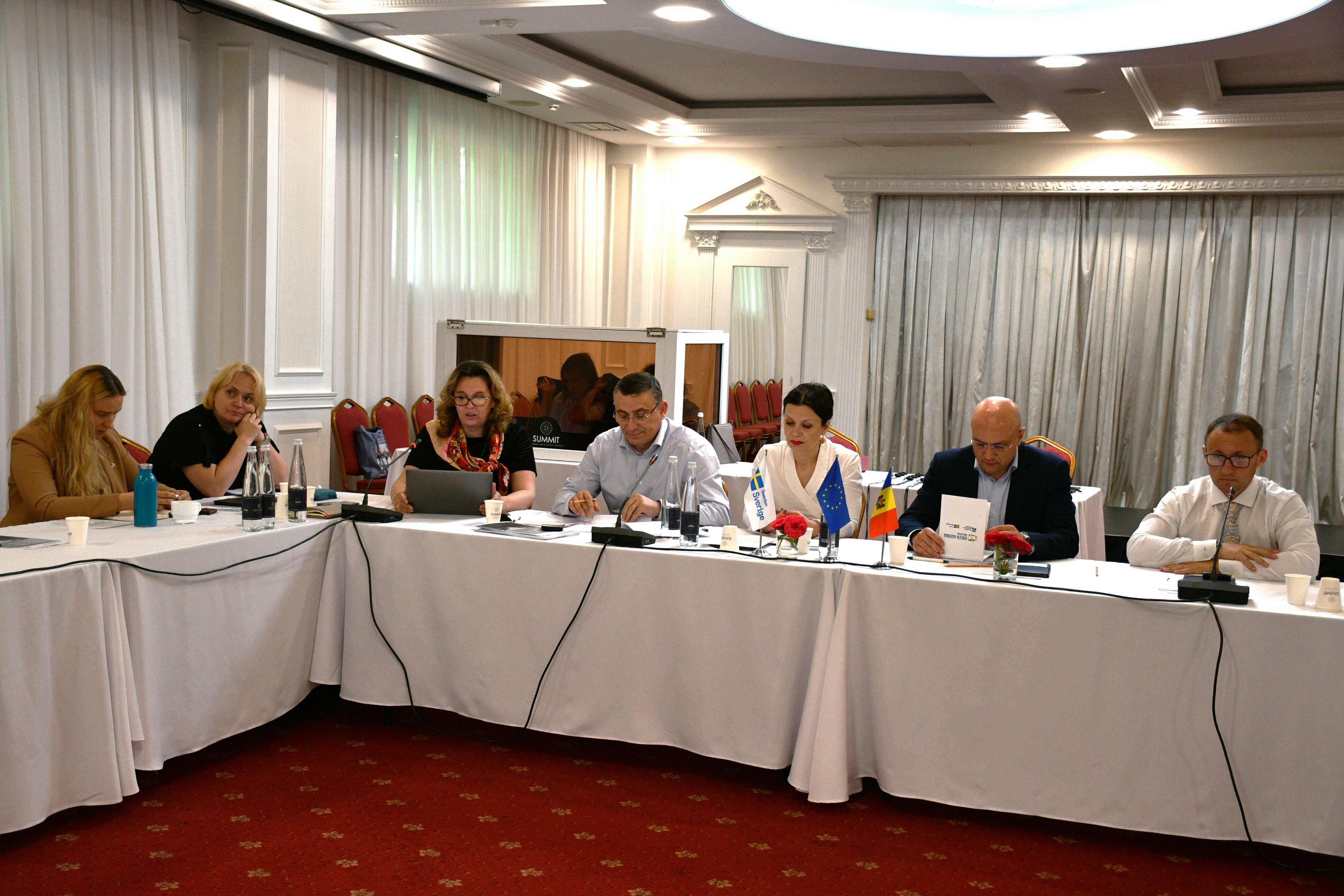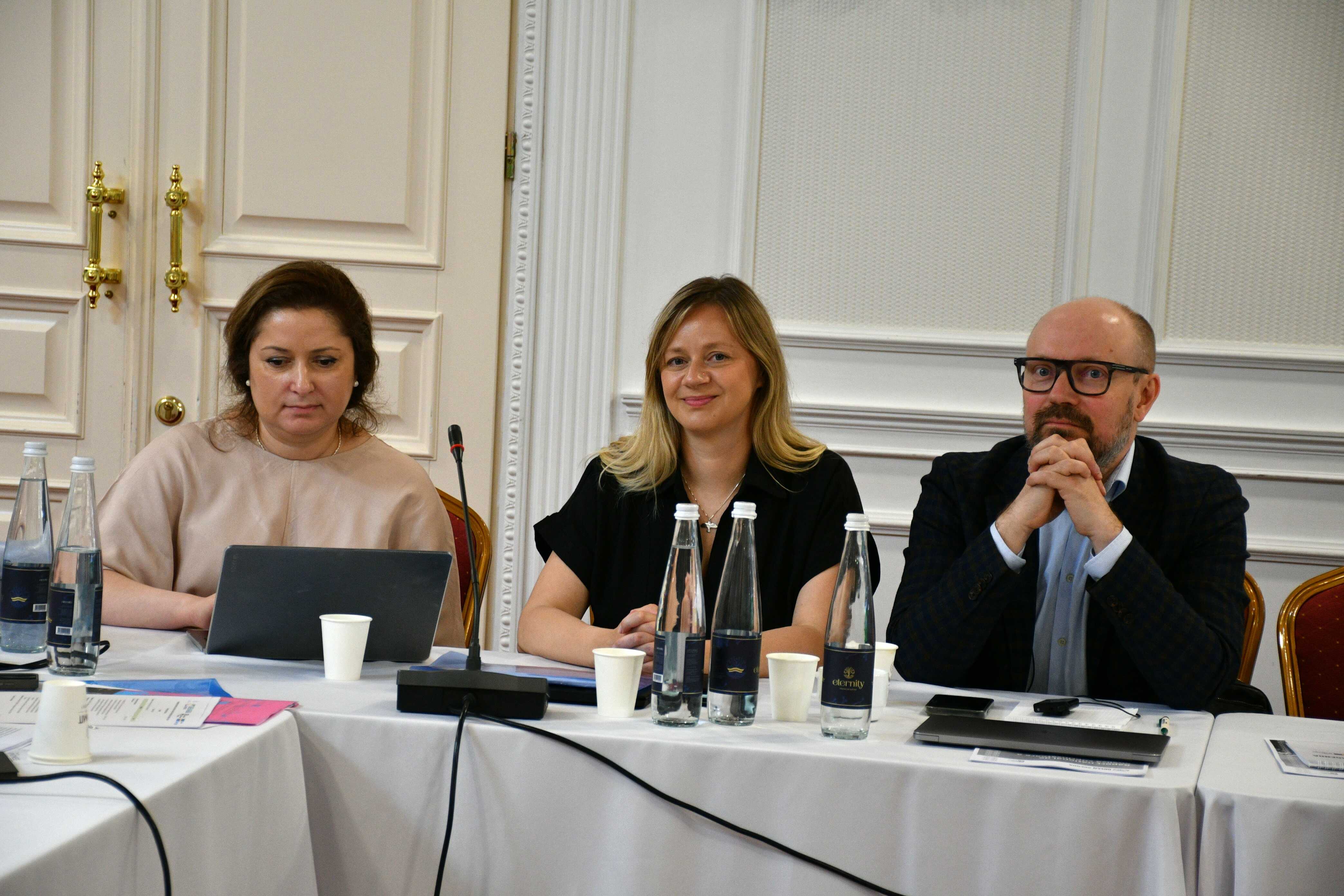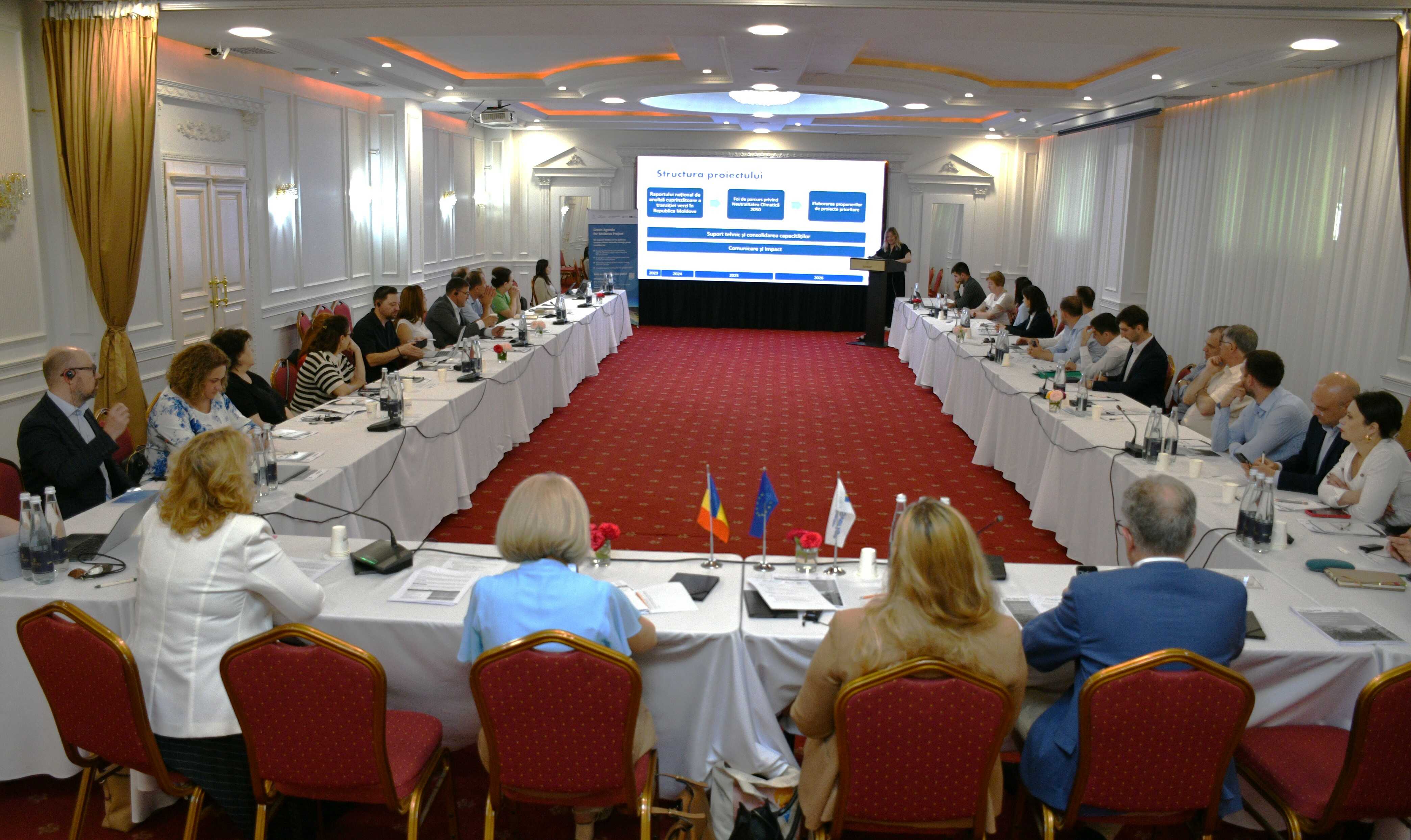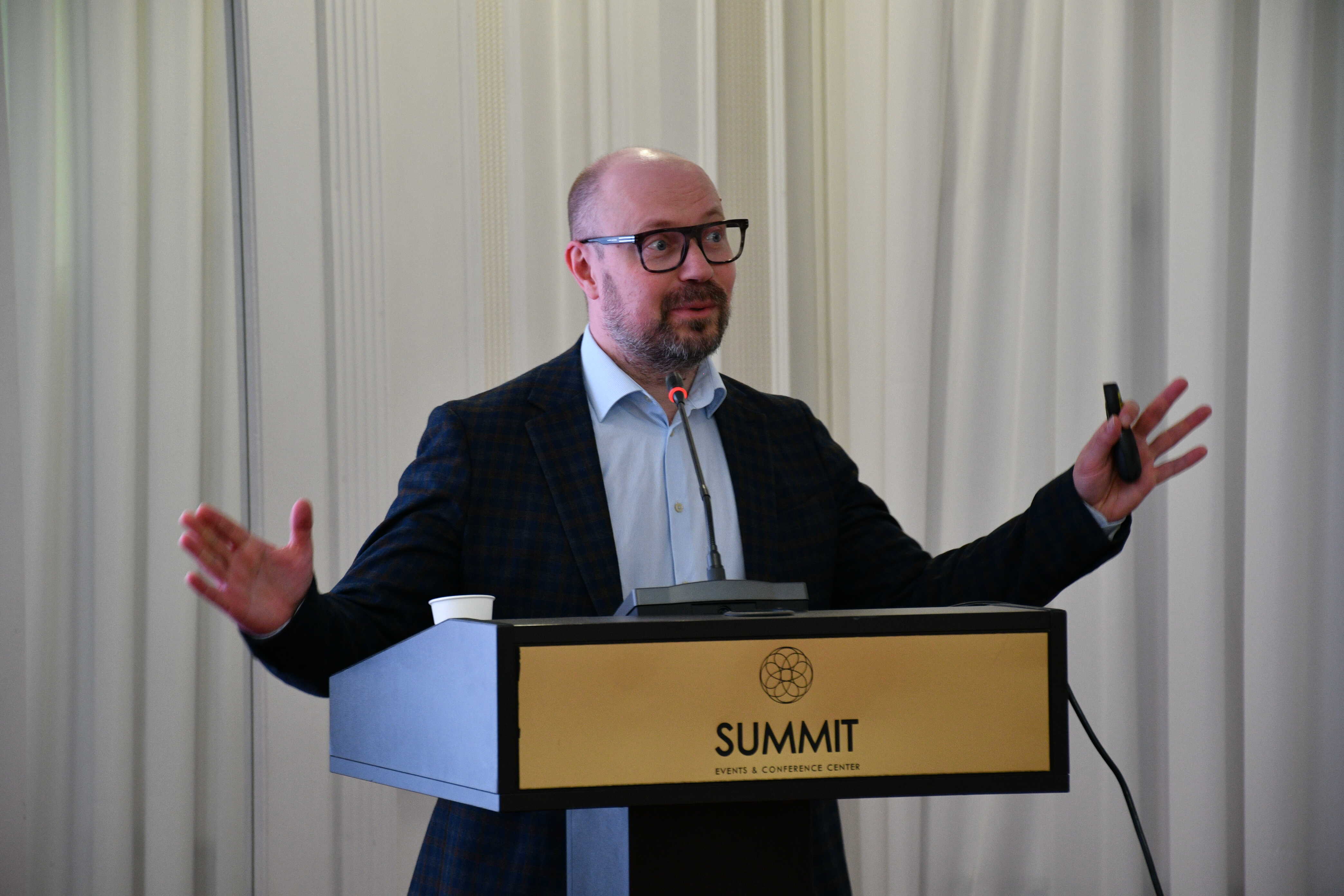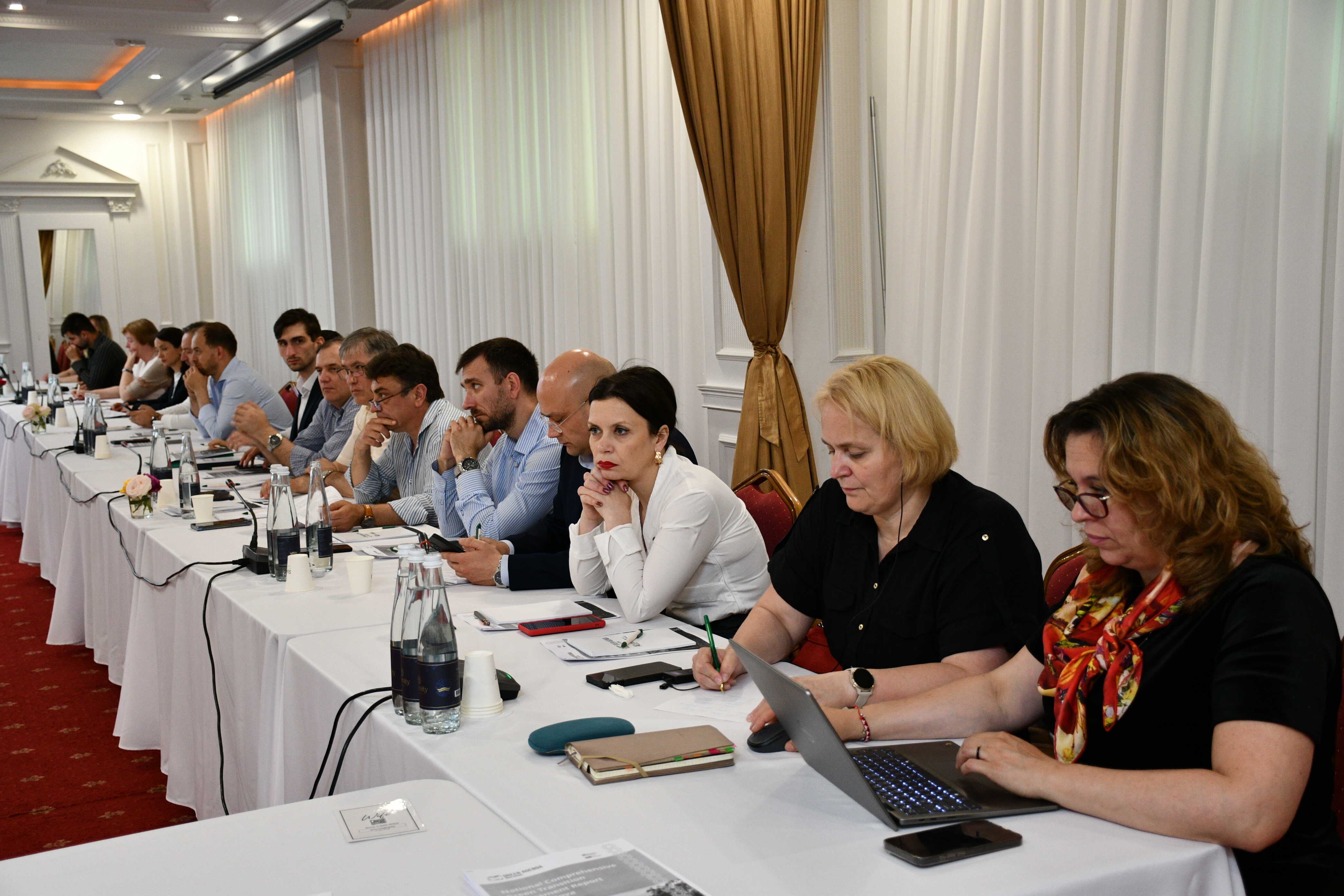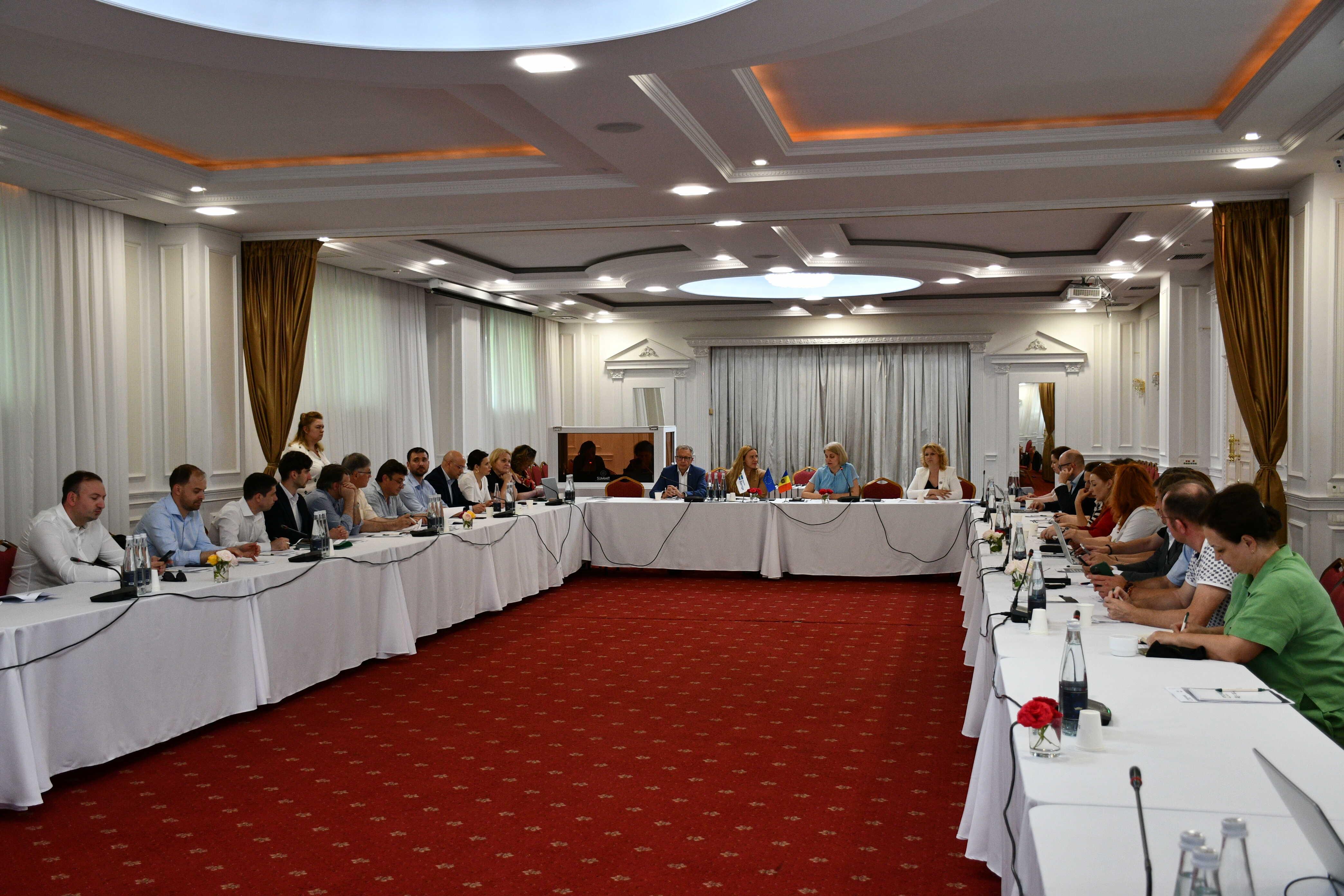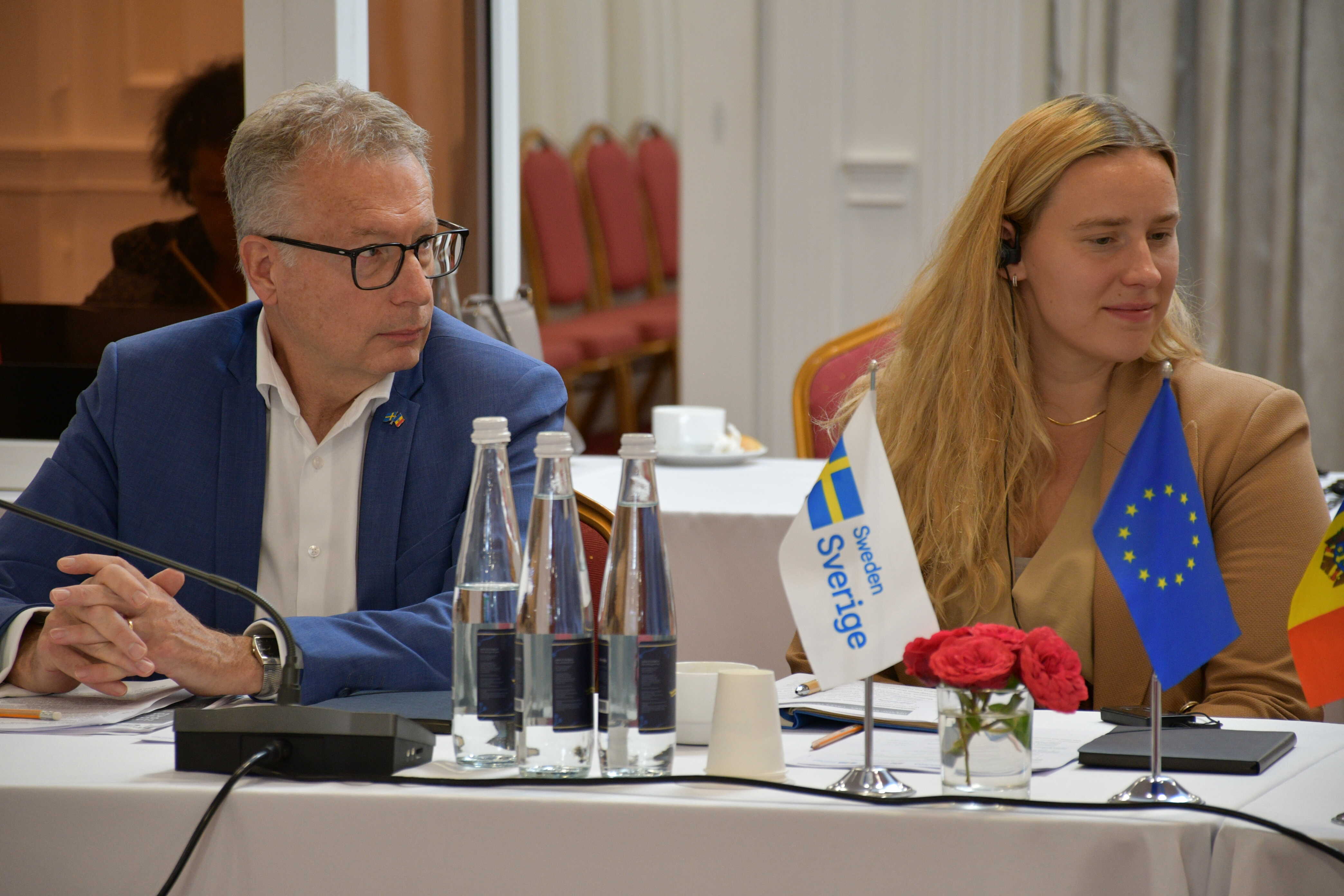New national assessment shows progress on Moldova’s green transition
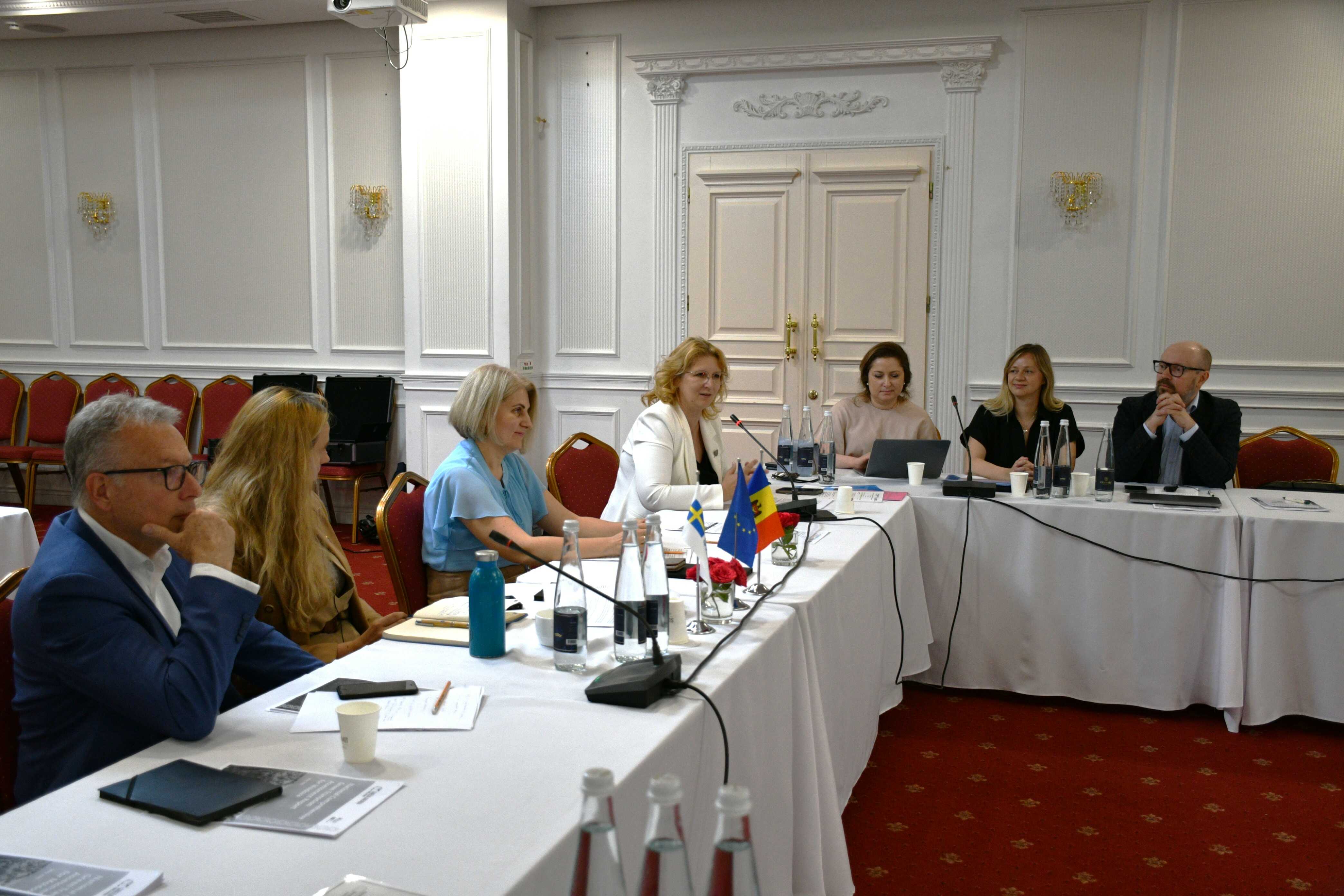
Moldova is approaching a defining moment on its European Union accession path. With EU negotiations intensifying around environment, climate, agriculture, rural development, transport and energy alignment, SEI – with support from the Swedish International Development Cooperation Agency (Sida) – launched its Moldova national assessment report in Chisinau on 10 June 2025 under the Green Agenda project.
A National Assessment for a European future
The newly released National Comprehensive Green Transition Assessment Report benchmarks Moldova’s progress towards the green economy and EU alignment, measuring achievements and roadblocks in climate action, energy, buildings, industry, pollution, agriculture, transport, and biodiversity. Each sectoral chapter assesses strategic goals Moldova has set for itself, current status and trends in environmental performance, and major policy roadblocks and enablers, ultimately ranking Moldova’s readiness from little to significant progress.
The report also spotlights how finance, research and development, digitalization, and just transition policies can accelerate sustainable, competitive and resilient economic growth in Moldova.
”The Green Transition report shows that Moldova is making steady progress on the Green Agenda – a key area in Moldova’s path towards EU membership. Green transition is a complex process the engages many parts of society. The Swedish experience shows that implementing good environmental polices has a direct impact in improving peoples living standards, driving innovation in cleaner technology and private sector competitiveness. Sweden is committed to continue supporting Moldova’s green transition agenda and its paths towards EU membership.”
Thomas Alveteg, First Secretary, Deputy Head of Cooperation, Embassy of Sweden, Moldova
Moldova’s high ambition – and the urgent work ahead
Moldova commits to reducing emissions by over 70% by 2030, exceeding the EU average. Yet with climate-driven disasters already costing the country 1.3% of its GDP each year, adaptation must rapidly catch up with ambition if Moldova wants to make its green leap a reality. The report suggests that sustained support from international partners – technical assistance, blended finance, and knowledge exchange – is crucial.
”The Economic Growth Plan of the Republic of Moldova, recently launched, places the green and digital transitions at the core of the structural transformation of our national economy. One of the strategic pillars of this vision is to attract foreign investment and to capitalize on available domestic financial resources by developing alternative financial instruments and expanding green lending mechanisms for local businesses – all within a predictable, transparent framework aligned with EU standards. The Ministry of Economic Development and Digitalization will continue to play a key role in this process by advancing public policies that support a sustainable, inclusive, and resilient future for the Republic of Moldova.”
Natalia Selevestru, State Secretary at the Ministry of Economic Development and Digitalization of the Republic of Moldova
“Much more than climate action”: EU aspirations for Moldova
Against the backdrop of regional instability, Moldova’s commitment to sustainability is about more than fighting climate change. It is a foundation for energy security, technological modernization and the resilience needed for both economic growth and EU membership. As Green Agenda Senior Adviser Lauri Tammiste notes, “Moldova’s pursuit of a green transformation is about much more than climate action – it is a geopolitical choice and a commitment to European aspiration at a pivotal moment.”
Key gaps identified in the SEI Green Agenda report:
Accelerating digital and green transformation: Expanding digital services, developing sector-based decarbonization strategies, and scaling green tech are essential for boosting innovation, exports and green jobs while improving living standards and access to EU markets.
Adaptation readiness: Urgent adaptation measures across the board, both in public and private sectors, are necessary to reduce damages from climate change that are disproportionately affecting vulnerable groups.
Unlocking green capital: According to several studies, significant capital investment needs of more than EUR 30 billion to reach net zero. There is a substantial funding gap that will require Moldova to tap into additional climate-aligned finance and mobilize broader private sector engagement.
Local leadership and green finance: Municipalities need more tools and capacity, as well as domestic green finance solutions, to drive effective local climate action beyond reliance on international aid.
Attracting investments in the energy sector: Regulatory improvements and market confidence are crucial to unlock investment in renewables, storage capacity and energy efficiency, and to tackle workforce and infrastructure gaps.
Sustainable agriculture for EU markets: Export-oriented reforms in Moldova’s agriculture sector will boost competitiveness of agriproducts, ensuring a balance of environmental protection food quality speeds up EU market integration.
Protecting nature: Urgent implementation of afforestation measures is required, along with the prompt renewal of relevant policies, to ensure sustainable land management and alignment with EU biodiversity requirements.
Water and waste solutions: Significant upgrades in wastewater treatment and circular economy practices are vital for public health, environmental protection, and reversing growth in pollution and waste generation.
Modernizing the transport sector: A decisive shift away from a road-centric system and the modernization of the vehicle fleet and public transport infrastructure, along with the deployment of intelligent transport system technologies, are essential to significantly reduce emissions, improve accessibility to transport services, and ensure alignment with the EU.

